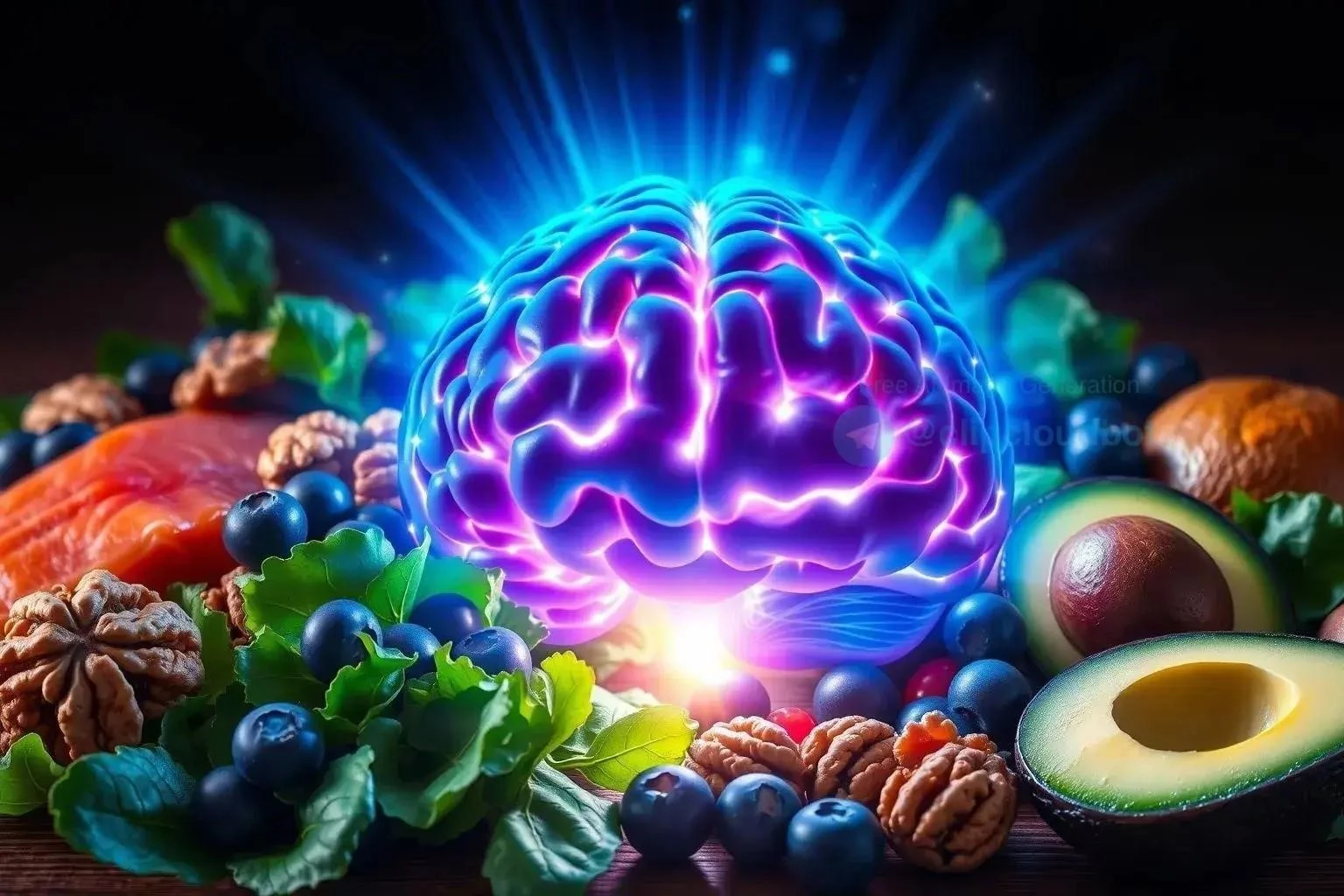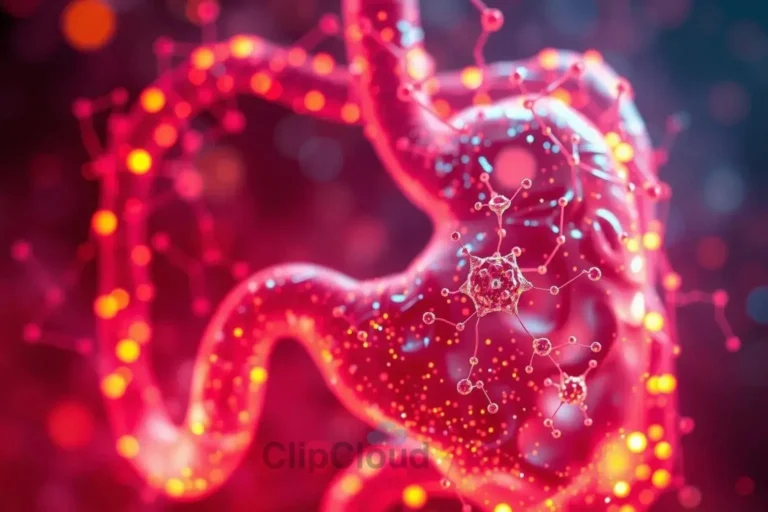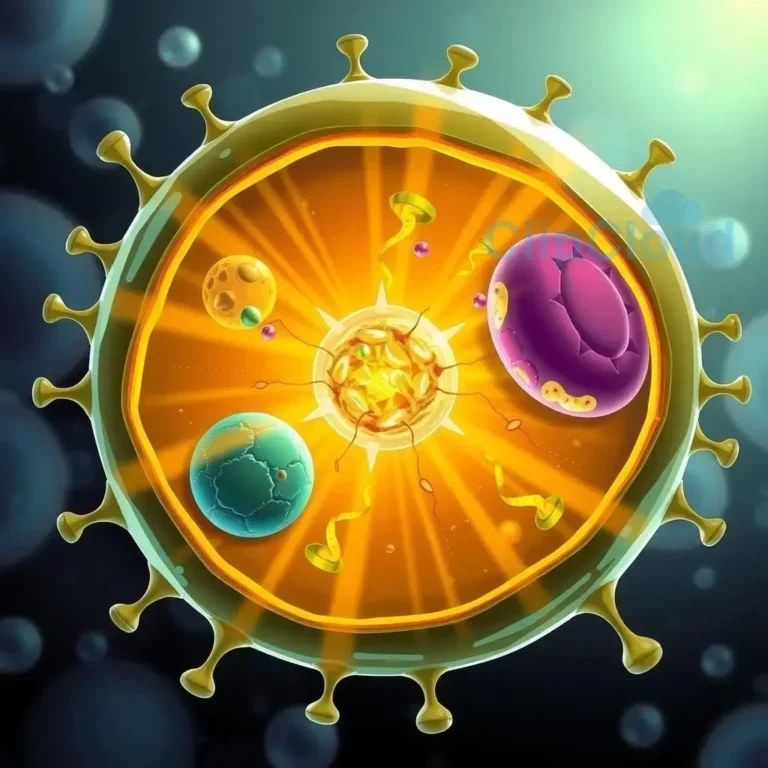Brain Food: Boosting Cognitive Function and Mental Clarity Through Nutrition
Unlocking your brain’s full potential hinges on providing it with the right fuel․ Just as a high-performance engine requires premium gasoline‚ your brain thrives on a nutrient-rich diet․ This exploration delves into the fascinating world of “brain foods‚” highlighting the crucial role nutrition plays in optimizing cognitive function‚ enhancing mental clarity‚ and promoting overall brain health․ Discover the power of targeted nutrients to sharpen focus‚ boost memory‚ and elevate your cognitive performance․
The Power of Nutrients for Brain Health
The intricate workings of our brains rely heavily on a consistent supply of essential nutrients․ These vital components act as the building blocks for brain structure‚ the fuel for neurotransmission‚ and the protective shield against oxidative stress and inflammation․ A balanced and nutrient-rich diet isn’t just about physical well-being; it’s foundational for maintaining sharp cognitive function‚ robust memory‚ and a resilient mood throughout life․ Think of your brain as a complex‚ high-performance machine – it requires premium fuel to operate optimally․
Specific nutrients play starring roles in various aspects of brain health․ Antioxidants‚ found abundantly in colorful fruits and vegetables‚ combat free radicals‚ protecting brain cells from damage and promoting longevity․ B vitamins are crucial for neurotransmitter synthesis‚ ensuring efficient communication between brain cells and supporting optimal cognitive performance․ Minerals like iron and zinc are essential for oxygen transport and enzyme function‚ contributing to overall brain health and preventing cognitive decline․
Furthermore‚ the intricate connection between gut health and brain health is increasingly recognized․ A healthy gut microbiome plays a vital role in nutrient absorption‚ influencing the availability of crucial brain-boosting compounds․ Probiotics and prebiotics‚ found in fermented foods and fiber-rich sources‚ support a thriving gut ecosystem‚ indirectly contributing to improved cognitive function and mental clarity․
The power of nutrients extends beyond simply preventing cognitive decline․ Strategic dietary choices can actively enhance cognitive abilities‚ boosting memory‚ improving focus‚ and sharpening mental acuity․ By providing your brain with the optimal balance of essential nutrients‚ you empower it to function at its peak‚ supporting clear thinking‚ efficient learning‚ and a resilient mental state․
Investing in a nutrient-rich diet is an investment in your long-term brain health․ It’s a proactive approach to maintaining cognitive vitality‚ preserving mental sharpness‚ and enjoying a vibrant‚ fulfilling life․ Understanding the crucial role of nutrition in brain health empowers you to make informed dietary choices that support your cognitive well-being now and in the years to come․
Essential Vitamins and Minerals for Optimal Brain Power
Specific vitamins and minerals play crucial roles in maintaining and enhancing cognitive function․ These micronutrients act as the spark plugs for various brain processes‚ from neurotransmitter synthesis to protecting against oxidative stress․ Understanding their individual contributions empowers you to make informed dietary choices that fuel your brain for optimal performance․
B Vitamins: This family of vitamins‚ including B6‚ B9 (folate)‚ and B12‚ is essential for nerve function and neurotransmitter production․ They contribute to healthy brain development‚ cognitive performance‚ and mood regulation․ Leafy green vegetables‚ legumes‚ and whole grains are excellent sources of B vitamins․
Vitamin C: A potent antioxidant‚ vitamin C protects brain cells from damage caused by free radicals․ It also plays a role in collagen production‚ which is important for blood vessel health‚ ensuring adequate blood flow to the brain․ Citrus fruits‚ berries‚ and bell peppers are rich in vitamin C․
Vitamin D: Often referred to as the “sunshine vitamin‚” vitamin D is involved in various brain processes‚ including neuroprotection and cognitive function․ Fatty fish‚ fortified foods‚ and sensible sun exposure are key sources of vitamin D․
Vitamin E: Another powerful antioxidant‚ vitamin E protects brain cell membranes from oxidative damage․ It may also play a role in preventing cognitive decline associated with aging․ Nuts‚ seeds‚ and vegetable oils are good sources of vitamin E․
Iron: Essential for oxygen transport throughout the body‚ including the brain‚ iron deficiency can lead to fatigue‚ brain fog‚ and impaired cognitive function․ Red meat‚ beans‚ and spinach are good sources of iron․
Zinc: Involved in numerous enzymatic reactions‚ zinc plays a critical role in learning and memory․ It also supports healthy immune function‚ which indirectly impacts brain health․ Oysters‚ pumpkin seeds‚ and chickpeas are good sources of zinc․
Magnesium: This mineral is involved in over 300 biochemical reactions in the body‚ including nerve function and neurotransmitter regulation․ It contributes to learning‚ memory‚ and stress management․ Leafy greens‚ nuts‚ and seeds are excellent sources of magnesium․
By prioritizing a diet rich in these essential vitamins and minerals‚ you provide your brain with the tools it needs to thrive․ This nutritional foundation supports optimal cognitive function‚ sharpens mental clarity‚ and promotes long-term brain health․
Omega-3 Fatty Acids: A Cornerstone of Cognitive Health
Omega-3 fatty acids‚ particularly DHA (docosahexaenoic acid) and EPA (eicosapentaenoic acid)‚ are essential fats that play a crucial role in brain structure and function․ These vital nutrients are integral components of brain cell membranes‚ influencing their fluidity and communication efficiency․ DHA‚ in particular‚ is highly concentrated in the brain and is essential for optimal cognitive development and function throughout life․
The benefits of omega-3s for cognitive health are extensive․ Studies have shown that adequate intake of DHA and EPA can enhance memory‚ improve focus‚ and boost overall cognitive performance․ These fatty acids also possess anti-inflammatory properties‚ protecting brain cells from damage and reducing the risk of age-related cognitive decline․
Furthermore‚ omega-3s play a vital role in mood regulation․ Research suggests a link between omega-3 deficiency and an increased risk of mood disorders‚ such as depression and anxiety․ By ensuring adequate intake of these essential fats‚ individuals can support emotional well-being and promote a more balanced mood․
The best sources of DHA and EPA are fatty fish like salmon‚ mackerel‚ and sardines․ Plant-based sources‚ such as flaxseeds and chia seeds‚ provide ALA (alpha-linolenic acid)‚ which the body can convert to DHA and EPA‚ albeit with limited efficiency․ For individuals who struggle to consume enough omega-3s through diet alone‚ supplementation can be a valuable option․
Including omega-3-rich foods in your diet is a proactive step towards supporting lifelong brain health․ From enhancing cognitive function and protecting against age-related decline to promoting emotional well-being‚ these essential fats are true cornerstones of cognitive health․ Prioritizing omega-3 intake is an investment in your brain’s present and future well-being․
Embracing a diet rich in omega-3s is not just about preventing cognitive decline; it’s about optimizing brain function and unlocking your cognitive potential; By providing your brain with these essential building blocks‚ you empower it to perform at its best‚ supporting sharp thinking‚ efficient learning‚ and a resilient mental state․ Make omega-3s a priority in your nutritional plan for a healthier‚ sharper mind․
Mood-Boosting Foods: The Link Between Diet and Emotional Well-being
The connection between diet and mood is profound․ The foods we consume directly impact our brain chemistry‚ influencing neurotransmitter production and overall emotional well-being․ By making conscious food choices‚ we can support a more balanced mood‚ reduce feelings of stress and anxiety‚ and cultivate a greater sense of emotional resilience․ This exploration delves into the fascinating world of mood-boosting foods and the intricate interplay between diet and emotional health․
Complex Carbohydrates: These provide a sustained release of glucose‚ the brain’s primary fuel source‚ promoting stable energy levels and reducing mood swings․ Opt for whole grains‚ fruits‚ and vegetables over refined carbohydrates․
Protein-Rich Foods: Essential for neurotransmitter synthesis‚ protein plays a crucial role in mood regulation․ Include lean meats‚ poultry‚ fish‚ beans‚ lentils‚ and nuts in your diet․
Foods Rich in Tryptophan: This amino acid is a precursor to serotonin‚ a neurotransmitter that promotes feelings of well-being and happiness․ Turkey‚ chicken‚ eggs‚ and dairy products are good sources of tryptophan․
Probiotic-Rich Foods: A healthy gut microbiome is increasingly linked to improved mood and reduced anxiety․ Fermented foods like yogurt‚ kefir‚ and sauerkraut support a thriving gut ecosystem․
Foods Rich in Magnesium: This mineral plays a crucial role in stress management and mood regulation․ Leafy greens‚ nuts‚ seeds‚ and whole grains are excellent sources of magnesium․
Dark Chocolate: Rich in flavonoids‚ dark chocolate can boost mood and improve cognitive function․ Choose dark chocolate with a high cocoa content (70% or higher)․
By incorporating these mood-boosting foods into your daily diet‚ you can nourish your brain and support emotional well-being․ Remember that a holistic approach to mental health includes not only dietary choices but also stress management techniques‚ regular exercise‚ and adequate sleep․ Prioritizing a balanced diet rich in these mood-enhancing nutrients is a powerful step towards cultivating a happier‚ healthier you․
Nutritional Psychology: Exploring the Diet-Mind Connection
Nutritional psychology is an emerging field that explores the intricate relationship between diet and mental health․ It delves into how the foods we consume impact our thoughts‚ emotions‚ and behaviors․ This fascinating area of study recognizes that nutrition plays a crucial role not only in physical health but also in cognitive function‚ mood regulation‚ and overall psychological well-being․
Research in nutritional psychology has revealed compelling links between dietary patterns and mental health outcomes․ Studies have shown that diets rich in fruits‚ vegetables‚ whole grains‚ and lean proteins are associated with a lower risk of depression‚ anxiety‚ and other mood disorders․ Conversely‚ diets high in processed foods‚ sugary drinks‚ and unhealthy fats are linked to an increased risk of mental health challenges․
The gut-brain axis‚ a bidirectional communication pathway between the gut and the brain‚ is a key focus of nutritional psychology․ A healthy gut microbiome‚ influenced by our dietary choices‚ plays a vital role in producing neurotransmitters‚ modulating inflammation‚ and influencing brain function․ This intricate connection highlights the importance of nourishing not only our brains but also our guts for optimal mental well-being․
Nutritional psychology empowers individuals to take control of their mental health through conscious dietary choices․ By understanding the impact of specific nutrients on brain function and mood‚ we can make informed decisions about the foods we consume․ This proactive approach to mental wellness involves incorporating nutrient-rich foods‚ minimizing processed foods and added sugars‚ and prioritizing a balanced‚ varied diet․
Furthermore‚ nutritional psychology emphasizes the importance of a holistic approach to mental health․ While diet plays a significant role‚ other lifestyle factors‚ such as exercise‚ sleep‚ stress management‚ and social connections‚ also contribute to overall psychological well-being․ By addressing these interconnected aspects of our lives‚ we can create a foundation for optimal mental health and resilience․






